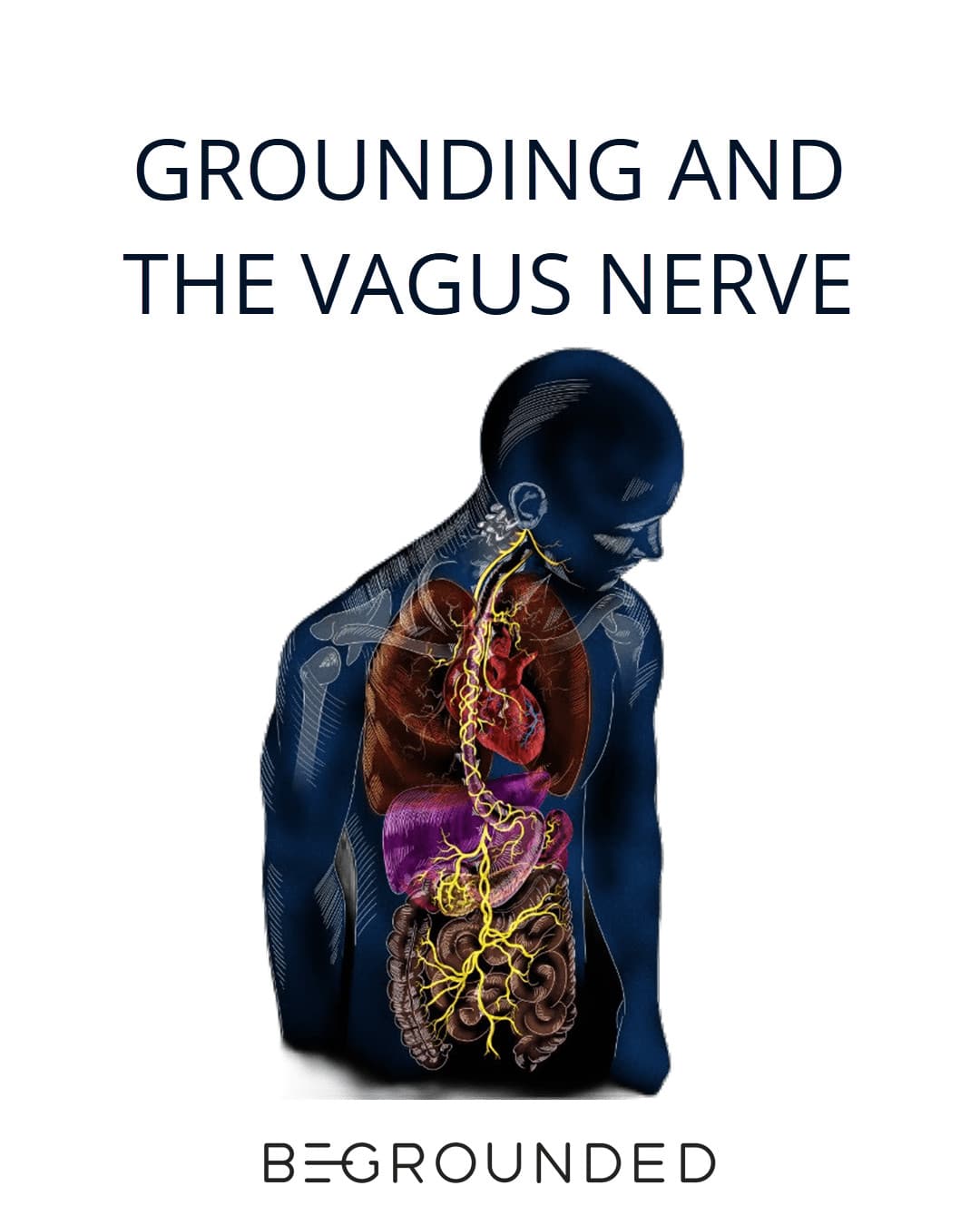
What is the Vagus Nerve?
The vagus nerve is the 10th cranial nerve (nerve that originates in the brain) and the main nerve of the parasympathetic system. That is the part of the nervous system that makes you feel safe and relaxed. The vagus nerve is vital for keeping our bodies healthy and free from disease by regulating our immune systems, controlling stress levels, and reducing inflammation.
Also, referred to as the ‘wandering nerve’, the vagus ‘wanders’ from the brain, through the neck into the chest and abdomen. The vagus nerve supplies and regulates key organs, including the stomach, lungs, heart, spleen, intestines, liver, and kidneys.
The sympathetic nervous system (the not so good bit) is an evolutionary response to stress and when triggered by stress or indeed physical danger (the far rarer of the two) it leads to the ‘fight or flight’ response which speeds heat rate and delivers more blood to area of the body that need more oxygen to be able to escape the danger- like muscles. And can make us feel jittery and tense.
The vagus nerve counter balances this fight or flight system. Stimulating the vagus nerve triggers a relaxation response which is better for every function in our bodies and feel so much nicer!
What is Vagal Tone?
‘Vagal tone’ tells us how well the vagus nerve is functioning. The best measurement if vagal tone is heart rate variability (HRV).
Improving vagal tone has been associated with the improvement in many illnesses including gastrointestinal conditions. This is because our entire digestive tract is driven by the vagus nerve. Everything from our salivary glands to our swallowing mechanism to gut peristalsis and even digestive enzyme secretion is guided by vagus nerve function.
But because the vagus nerve innervates so many major organs of the body, improving vagal tone can impact every function of your body.
Here are 10 easy ways to improve Vagal tone:
- Deep Breathing: Practice slow, deep breaths, focusing on exhaling longer than inhaling. This stimulates the vagus nerve and promotes relaxation.
- Meditation: Engage in regular meditation or mindfulness practices. These techniques help calm the mind and activate the parasympathetic nervous system, enhancing vagal tone.
- Yoga: Incorporate gentle yoga poses, particularly those that involve deep stretches and controlled breathing. Yoga can activate the vagus nerve and promote relaxation.
- Cold Exposure: Take cold showers or splash cold water on your face. The shock of cold water stimulates the vagus nerve and can help improve its tone.
- Singing or Chanting: Engage in activities that involve vocalization, such as singing or chanting. These activities stimulate the vagus nerve and promote relaxation.
- Laughter Therapy: Watch a funny movie, spend time with humorous friends, or engage in activities that make you laugh. Laughter triggers the release of endorphins and activates the vagus nerve.
- Social Connections: Maintain strong social connections and spend quality time with loved ones. Positive social interactions and a strong support network can enhance vagal tone.
- Massage: Regularly receive massages or practice self-massage techniques. Massage helps relax the body and stimulate the vagus nerve. As a massage therapist I can vouch for the power of both massage and reflexology in improving vagal tone!
- Exercise: Engage in regular physical activity, such as walking, swimming, or cycling. Exercise has numerous benefits, including improving vagal tone and overall cardiovascular health.
- Grounding, grounding, grounding…
How does Grounding help with Vagal tone?
Excitingly an ever expanding body of research over the past few decade have shown that grounding can also help improve vagal tone.
Grounding, also known as earthing, refers to the practice of connecting with the Earth’s electrical energy by walking barefoot on the ground or using grounding devices such as the BeGrounded product range. While there is limited scientific research specifically focused on grounding and vagal tone, some studies have explored the potential benefits of grounding on various aspects of health and wellbeing.
In one example, doctors at the Pennsylvania State University Children’s Hospital reported that grounding produced immediate and significant improvements in measurements of the autonomic nervous system (ANS), the functioning of the vagus nerve, and improved measures in heart rate variability (HRV).
(Source: The Earthing Institute https://earthinginstitute.net/)ll-being.
Top four ways Earthing impacts the Vagus Nerve
- Reduction of Inflammation: Inflammation is associated with a lower vagal tone. A study published in the Journal of Inflammation Research in 2015 found that grounding significantly reduces inflammation in the body by normalizing cortisol levels and balancing the sympathetic nervous system, which indirectly affects vagal tone.
- Stress Reduction: Chronic stress negatively impacts vagal tone. A study published in the Journal of Alternative and Complementary Medicine in 2010 found that grounding reduces stress and enhances overall mood, suggesting potential benefits for vagal tone improvement.
- Autonomic Nervous System Balance: Grounding has been shown to promote autonomic nervous system balance, which includes the parasympathetic activation associated with vagal tone improvement. A study published in Integrative Medicine: A Clinician’s Journal in 2015 demonstrated that grounding can improve heart rate variability, an indicator of autonomic nervous system function.
- Sleep Quality Enhancement: Restorative sleep positively influences vagal tone. A pilot study published in the Journal of Alternative and Complementary Medicine in 2004 found that grounding improved sleep quality and reduced pain, suggesting potential indirect benefits for vagal tone enhancement.
Tag: Health


